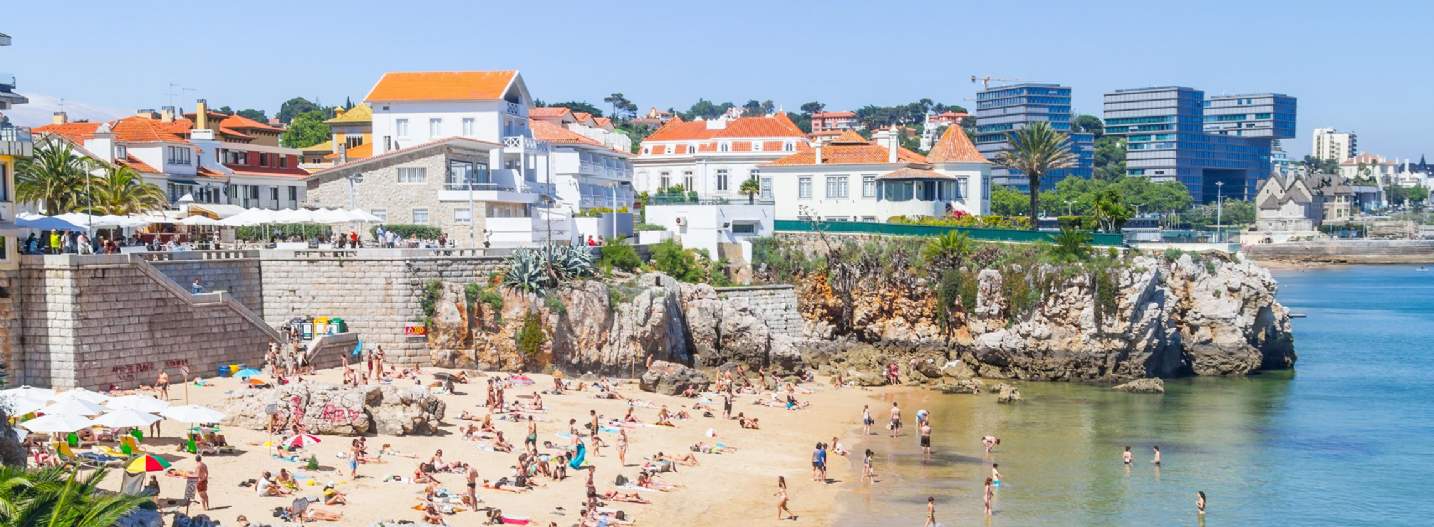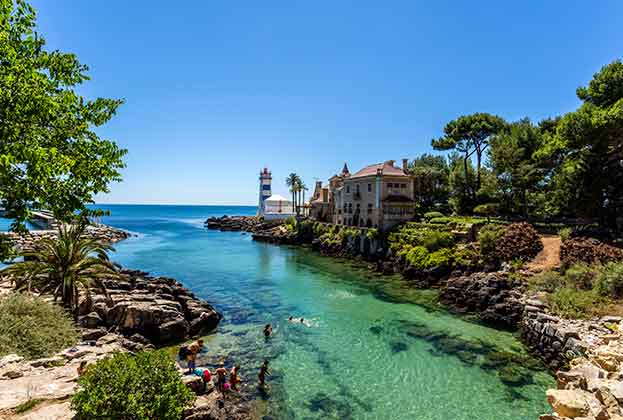Global interest in the prime property markets is boosting Portugal’s prime residential markets
Portugal’s international reputation and popularity has continued to grow over the last decade and has positioned the country among the top international destinations for second homes. In the south of the country, tourists and buyers from the United Kingdom, Spain, Germany, and France continue to flock to the sunny shores. Urban centres such as Lisbon and Porto have also gained prominence as some of the most sought-after European cities for tourism and business.
This popularity has been aided by recent economic strength. In 2023, Portugal’s economy expanded by 2.3%, outperforming the eurozone by 1.6% last year. In addition, recent employment statistics have remained robust and inflation has begun slowing, increasing consumer confidence.
Despite greater global macroeconomic uncertainty and inflationary pressures, the Portuguese economy remains resilient and stable.
While the pandemic did slow sales during the two-year period, the residential market has experienced a resurgence. In 2022, sales numbers fully recovered to pre-pandemic levels and reached a total of 167,900 properties. However, a new slowdown hit the residential market in 2023 due to the rise in inflation and interest rates across the global economy. Over the course of the year, a total of 136,499 properties were sold in Portugal, a decline of 19%. With inflation expected to continue to fall this year, the slowdown in sales is expected to not last through 2024.
The prime residential market has seen consistently high levels of demand from international buyers. The urban centres of Lisbon and Porto exemplify this, with records broken in both the number of tourists and residential property sales in 2023. Mortgages for international buyers have risen from 8% of total loans granted in 2021 to 13.5% in 2023. However, a combination of labour shortages and prolonged licensing, rising construction costs, and processes for new properties have limited construction, which along with the increased demand, have caused significant price increases.
Portugal’s continued prime residential resilience is shared with its other southern European markets, whose prime property markets outperformed their northern European counterparts in 2023. Despite the price rises seen over the previous years, Lisbon remains, comparatively, more affordable than other cities tracked in the Savills World Cities Prime Residential Index.
As with other global markets, prime rents across Portugal have outpaced capital value growth. Despite the greater yearly cost increases, renting remains an affordable alternative to purchasing, especially in the prime section of the market. According to the 2021 census, 70% of households residing in Portugal own their primary residence, of which 38% have a housing loan. For those who do rent, the supply of properties on the rental market has not kept pace with demand, leading to a rise in the price of houses for rent throughout Portugal.
Savills Research expects average prime residential capital value growth of 0.6% across major global cities this year, lower than the 2.2% growth seen in 2023. In addition to the major cities of Porto and Lisbon, there remains a strong continued interest in prime coastal residential which will help drive growth in 2024. Portuguese markets are set to exceed the global forecast, with Lisbon forecast to see capital value growth of 0%-1.9%, especially if economic indicators remain healthy.
Digital nomads represent a new segment of the modern workforce, one which does not require any particular physical location to work from. Portugal has successfully positioned itself as a key destination for this new group of innovators and business people through a variety of tax and visa incentive schemes. These digital and executive nomads often seek short and medium-term rentals, typically in proximity to amenities such as coworking spaces and cafes.
Their effect on the market is especially felt in Lisbon, a city with a burgeoning tech scene, where people gather around the core of an established city to collaborate. This trend has had a notable impact on both capital values and rents, as prime residential property is being utilised as an investment for short and medium-term rentals to accommodate this population.
The short-term rental market is often blamed for wider housing cost increases. Even pandemic-induced supply increases due to reduced global demand did not significantly slow rental growth, which continued apace as a result of some owners taking long-term rent properties off the market and converting them to short‑term ones.
To tackle this, a housing law has been proposed named Mais Habitação. First presented in early 2023, this legislation package includes several new measures related to short-term rentals, including new fees and a requirement for operating licenses. However, there is additional legislation that has been proposed which would likely benefit the short-term rentals market.
Read the articles within Savills Spotlight on Portugal report below





